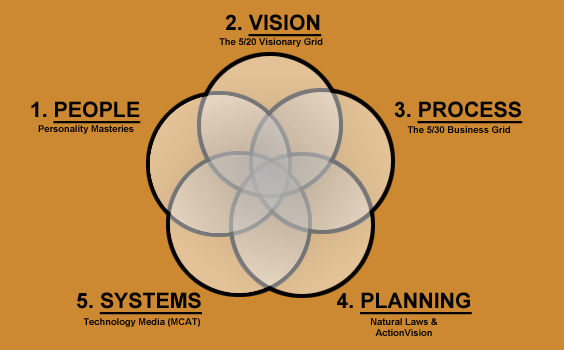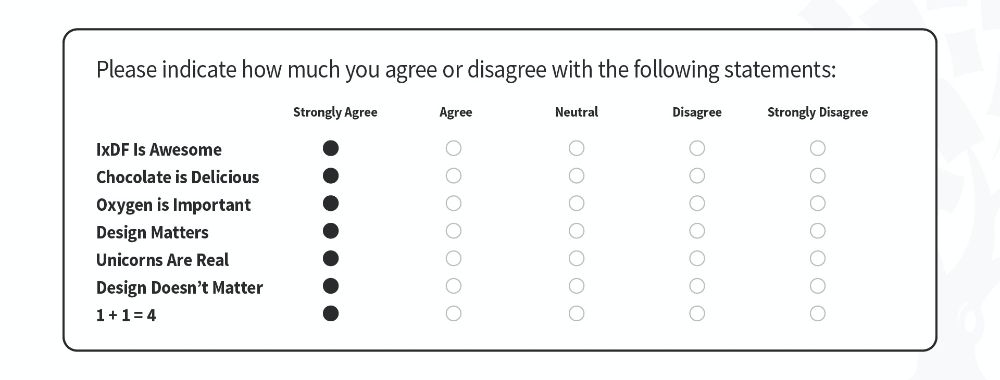Here at the UX Daily we’re quite aware that many of our readers are involved in startups and entrepreneurial endeavours; with that in mind today, we’d like to bring you a list of 10 things that every entrepreneur should know to help maximize their chances of success.
Decide Where You Will Spend Your Time (Play to Your Strengths)
Entrepreneurs can rarely do all the heavy lifting themselves in a startup. That means making decisions early as to where your efforts will add the most value to the overall business. It’s nice to think that you can handle sales, capital raising, development, UX design, accounting, HR, training, etc. all by yourself but you can’t.
Make the hard decisions about this early and you can start thinking about who you will need to help the business get to launch.
Don’t Start Hiring Until You Really Need To
I’ve worked in a lot of startup enterprises. You’d be amazed at how many of these businesses have hired me before they needed me. Don’t get me wrong, I’m happy to get paid to sit in a coffee shop reading a newspaper and drinking copious amounts of espresso. It’s just not good value for the business and it creates a certain level of resentment among those who are actually working now.
Only hire people when you need them but make certain that you have all the finance, HR and legal advice you need in place. The best way to do this without hiring is to contract it out to managed service firms in the early days.

Author/Copyright holder: Dita Margarita. Copyright terms and licence: CC BY 2.0
Forget the Work-Life Balance
Work-life balance is something that comes after launch. You can read all the nonsense you like from MLM marketers about how they “started and run a multi-million dollar business in less than an hour a day” but in real life – it doesn’t work like that. Real multi-millionaire entrepreneurs sacrificed their own time for their business during the startup (and quite often for a long time after that too).
Of course, that doesn’t mean – give up all of your life to the business it just means that you’ll be spending more time working than doing anything else.
You Don’t Need Great Ideas
Entrepreneurs don’t succeed because they have amazing ideas in the security of their offices which the world has always been waiting for. They succeed because they come up with solutions to real world problems. Those problems are ones with established markets for a solution – with no market, a great idea is a lousy idea. Find people’s pain points and help them overcome them, don’t get lost in “blue sky” thinking if you want to succeed.
You Do Need the Will to Turn Ideas into Reality
Most startups are constrained by resources. All startups need to take a product or service to market. The longer that takes – the more likely it is that you will fail. You need the drive and energy to take your ideas and turn them into reality. You need that more than anything else. Your business cannot succeed without something to sell. It really is that simple. If you focus all your efforts on turning ideas into reality; you set yourself up for success.

Author/Copyright holder: Unknown. Copyright terms and licence: Unknown. Img source
Get Things Done
It is almost always better for your business to be doing something than debating something. That doesn’t mean that you can’t entertain discussion and debate but it does mean that this needs to rapidly result in decisions and taking action. I’ve watched billion dollar enterprises waste months and hundreds of millions of dollars in cash because the management teams spent their lives in meetings rather than getting a job done. Most companies don’t have the luxury to endure this kind of waste.
Stop Micromanaging
Yes, it’s your company and your big idea but that doesn’t mean that you need to control every single aspect of how that company works or how that idea is executed. Hire people you trust to do a job and then get the heck out of their way and let them do it. It’s exhausting to try and track every person in a startup and it’s pointless too. The more you micromanage, the more your star performers will underperform. Why bring your creativity and A-Game to the party, if your idiot boss is going to make all the decisions anyway?
Build Your Brand Early
You don’t need a product to start developing your brand. Use speaking opportunities, social media, media interviews, etc. to start talking about what your brand is about. What are its values? What will people get from a relationship with your brand? Don’t tell any lies, be humble and authentic about the way your present the brand but get the brand out there as soon as you can. People are as enthusiastic about brands as they are about products and in most cases – brand relationships last much longer than product relationships do.

Author/Copyright holder: Unknown. Copyright terms and licence: Unknown.Img source
Work Out How to Get Paid
Seriously, you need to have a strong control over your cash flow from day one. It’s not enough to sell a product, you have to get paid for it too. Work out how you will collect the cash that your business is owed and be ruthless about implementing this. A business without money is finished. If you can’t pay your creditors – your company is no longer your company.
Listen to Your Customers
If your customers hate the product, it’s a bad product. It’s really as simple as that. This is where the phrase; “the customer is always right” comes into its own. The customer may be an ass but that doesn’t matter. What does matter is if the customer is going to spend his/her cash with you – if they won’t – you better shake things up pronto.
Summary
Entrepreneurial types learn mainly through trial and error. They fail as often (if not more often) as they succeed. This shouldn’t stop anyone from trying. The list above is based on comments by entrepreneurs about what they wish they’d known before they started. What do you think we could add to this list?
Header Image: Author/Copyright holder: The Vision Project. Copyright terms and licence: All rights reserved. Img












